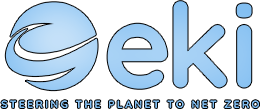
A new generation — when technologies are all the time developing in a manner that can significantly change how we have been used to living. In this era of digital transformation, one innovation stands out like a beacon of hope: blockchain Development Company technologies.
A world where to-and-fro deals are an open book, data is safe and sound, and at the very core of everything. This is the underlying principle of blockchain – an innovative method of public ledger that has the potential to empower the entire system of our lives, work and leisure.
Yet what is the impressive thing about blockchain is its ability not only to revolutionize technology but also to rearrange industries and transform the overall ecosystem into something radically new. Be it finance, healthcare, logistics management, or voting systems, blockchain has the potential to break new ground and change the range of scenarios, both in theory and in practice.
Your life will be changed once you closely pay attention to this blog which reveals 5 surprising ways blockchain will revolutionize your daily life. This influence of Blockchain goes from streamlining financial payments to securing medical records. This ranges from the integrity of elections to the protection of intellectual property rights.
5 Surprising ways Blockchain will Revolutionize your Daily Life.
So far, the change has been significant and beneficial.
1.Blockchain in Finance
Blockchain technology is set to transform the finance world by providing creative solutions that streamline operations, improve security, and reduce costs. One of the fundamental benefits of blockchain in finance is its ability to promote transparent and efficient transactions. Blockchain is cutting down on the number of mediators such as banks or payment processors by using distributed ledgers. The result is that transaction fees and processing times get reduced considerably.
Moreover, the blockchain leads to a process of authorization whereby endless records of transactions are built up that is cryptographically secure and hence cannot be altered. This assures the level of the risk of fraud and unauthorized access into the system. In addition, cryptocurrencies facilitate instant transactions without the long clearing and settlement processes.
An important application of blockchain in finance is the low cost of cross-border payments. Classical means of payment frequently charge high costs and have time-consuming procedures when executing out-of-country transactions. These drawbacks can be defeated by blockchain technology that is in the form of the ability to conduct fast, cheap, and transparent direct transfers.
Blockchain also creates new opportunities for financial inclusion by offering access to banking services to the unbanked and underbanked. Individuals may use blockchain-based systems to securely store and move cash, obtain credit and lending services, and participate in global financial markets.
2.Blockchain in Supply Chain Management
The integration of blockchain technology is undergoing a transformational shift in Supply chain management. It is an incomparable step of transparency and accountability towards the overall chain of supplies from raw material sourcing to customer delivery. Its capacity to impart a risk-free and tamper-proof record of transactions, one essential benefit of blockchain for supply chain management is it. Every single step of the value chain is entrihesed on a decentralized ledger which prevents the alteration or editing of data. Due to the transparency of the supply chain and consumer empowerment, this chance is lowered, thus inhibiting such things as fraud, counterfeiting and unauthorised tampering with the product's details.
Apart from this, blockchain technology streamlines the tracking and monitoring of items in real-time that take moves through the supply chain. To help them make accurate decisions venues might get help from IoT devices and sensors such as temperature, humidity, and place. These give necessary information on how many products are sensitive to these conditions while in transit.
Blockchain which is the technology brings the requisite trust in the supply chain by offering a unifying, single platform for data sharing and authentication. Intelligent contracts, that are based on blockchain technology, can eliminate supply chain gaps as well as disputes since they allow automation of the agreement execution and fee payments based on the prearranged terms.
3. Blockchain in Healthcare
Blockchain technology is rewriting the prevailing healthcare system order and is the leading malfunction in an area which is very susceptible to problems such as data privacy, patient privacy, and interoperability. The blockchain is a distributed system, and the records recorded are irreversible, so it offers a guarantee that no one in the medical service chain can control the data and maintain its legitimate transmission.
Healthcare professionals will be able to get access to reliable records and prevent the leakage of medical information with the help of blockchain in the management of medical records. Patient data in blockchain is encrypted and safe for anyone with authorised access, thus limiting the incidents of data breaches and unauthorized access to medical records.
Blockchain, like a network, allows for easy integration among healthcare providers and ensures that medical record-keeping and information sharing is done solely across several systems and platforms. The enlists care collaboration that leads to positive patient outcomes, thereby providing healthcare workers with the right information at the right time.
Blockchain also enables the creation of patient-centric healthcare solutions like telemedicine platforms and personalised treatment programmes. Blockchain encourages patient autonomy and involvement in their healthcare journey by allowing them to own their health data and share it with healthcare professionals as necessary.
4. Blockchain in Voting Systems
Blockchain technology has the potential to revolutionize the electoral process by improving the integrity, security and transparency of the electoral process. Traditional voting systems generally suffer from voter fraud, manipulation, and election result disputes. Blockchain provides a decentralized, tamper-proof platform for conducting elections, ensuring that votes are recorded accurately and securely.
Besides improving trustworthiness in election results, blockchain has a large implication for the democratic process through its two key features: reliability and verifiability. In the case of blockchain voting, each vote is already a matter of concern in a distributed ledger, implying that every single vote is visible, thus, accurate election processes are transparent and immutable. This means that it is possible to verify that votes are correctly recorded and counted and hence an election process is reliable and trusted by the voters.
Furthermore, blockchain technology brings in quite a lot of security to the election systems as it is used to encrypt and protect voting data, and voting data itself. The application of cryptographic procedures allows votes to be protected against fraud by preventing disclosure and from any meddling or manipulation, once that voting has been completed. It cuts back the danger of hacking, falsification, and fraud that expose the elections to the fraud risk.
Blockchain allows people to vote without the development of any specific technology and provides remote and secure voting making it possible for every world citizen to participate in elections. Using blockchain-based voting, voters can cast their ballots securely using digital signatures and cryptographic keys, eliminating the need for physical polling stations and paper ballots
5. Blockchain in Intellectual Property Rights
The landscape of intellectual property rights is set to undergo a major transformation through the use of blockchain technology, which offers a secure and transparent platform for protecting creators’ works. Intellectual property such as patents, copyrights, and trademarks are often infringed and used without permission. Blockchain provides a decentralized solution that cannot be tampered with.
Blockchain’s ability to establish transparent and immutable records of ownership makes it one of the most important things when it comes to intellectual property rights. They can register their work on the blockchain which creates a digital certificate of authenticity that proves where and who made it. In addition, this may not only reduce any chances that there would be an infringement but also provide a secure and clear channel for licensing and royalty payments.
Further, blockchain enables smart contracts that automate licensing agreements and royalty disbursements. Self-executing contract conditions are directly encoded into code in smart contracts. By doing so, creators of these products can receive fair compensation the utilization of their ideas while avoiding intermediaries hence reducing delays as well as disputes during the licensing process.
Moreover, blockchain technology also strengthens the security of IP against piracy and unauthorized usage. The distributed character of the blockchain guarantees that once registered, IP records will never be changed or falsified. This generates a trace that can’t be adulterated with time. Therefore making it easier to enforce copyright and other intellectual property rights as well as fight against counterfeiting.
Challenges and Concerns in Blockchain Technology
Blockchain technology, while holding great promise, faces challenges and concerns that need to be carefully considered for widespread adoption. These challenges include
Legal Uncertainty: The evolving regulatory landscape poses a challenge for blockchain adoption. Uncertainty about regulatory frameworks and compliance can hinder the integration of technology into traditional systems.
Energy Consumption Information: Blockchain networks, especially those that use proof-of-work (PoW) consensus mechanisms, often face criticism for their high energy consumption. As environmental sustainability becomes a global concern, addressing the carbon footprint of the blockchain industry becomes important.
Scalability Issues: Scalability remains a challenge, and this particularly applies to the case of public blockchain networks. With the increase in the number of connections, the parameter of time efficiency is added to make sure that there is no congestion and unnecessary complications in the network.
Interoperability: The problem of smooth collaboration between different blockchains is complex. The standardization of protocols would resolve the interoperability issue of exchanging information and assets between the separate systems.
Security Risk: Blockchain is synonymous with its security capabilities but not simplistic at all. Smart contract bugs, code errors and 51% of attacks come with increased security risks and can be avoided only by constant surveillance and best security practices.
Standardization Gap: When there is a lack of protocols, every blockchain platform will become fragmented. To ensure that blockchain ecosystems of different types can interact and talk to one another, the necessity of standardization is apparent.
Privacy Issues: Privacy also remains a primary concern associated with the transparency feature of blockchain. Nevertheless, there is a need to search for the needles in the haystack between the issues of data protection and transparency.
Quantum Computing Evolution: The close future of quantum computing can cause a breakthrough in associated cryptographic methods of blockchain. It seems that the long-term safety of the blockchain networks hinges on the technologists' ability to solve this issue.
It takes the cooperation of developers, regulators, and all the other blockchain community actors to tackle these challenges. While the technology evolves, taking the steps to address these concerns is going to be essential to fully unlock the potential of blockchain techniques across different businesses.
What is the Future of Blockchain in Daily Life?
The future of blockchain is revolutionary and it won't be either our life or the traditional models apart. With the elimination of identity theft, decentralized data management will provide customers with a safe and transparent channel for proving their credentials. The traceable supply chains, aided by Blockchain Consulting Services technology, will consequently stop any forgery and consequently increase consumer confidence.
The journey of blockchain in DeFi will completely redefine conventional banking by providing financial services to the unreached and also introducing smart contracts. Assets tokenization especially in real estate will change the ownership structure, allowing fractional ownership and therefore improving liquidity in usually ill-liquid markets.
The changed voting systems that can not be altered will ensure the security of the democratic process and bring about free elections, so the voters will have confidence. Smart contracts will execute and intelligentize the legal agreements, thus eliminating paperwork and bureaucratic problems by themselves.
However these promises are made, issues like regulatory vagueness, energy usage concerns, and scale-up problems remain. As blockchain technology develops its boundless innovative potential is an everyday phenomenon. As we reflect on that day when blockchain technology became an integral part of our daily lives, it can furthermore increase the efficiency, security, and accessibility of the different sectors we normally deal with.
Conclusion
In a nutshell, blockchain technology has ushered in an era of progressive innovation that has the potential to overturn how we live today in ways that we never considered possible. These are the 5 surprising ways blockchain will revolutionize your daily life by highlighting important areas such as finance, supply chain management, healthcare, voting system and intellectual property protection. Transparency, security of data management and decentralized control are the main solutions offered by blockchain regarding the existing concerns that give space for trust, efficiency and inclusivity in different industries of the economy.
Nevertheless, the resolution of issues like regulatory uncertainties, energy consumption worries and scalability dilemmas will become the most significant part of how blockchain technology can be fully used to its full potential. However, the power of blockchain should not be underestimated because it contains fascinating prospects for novelty and collaboration.
Looking ahead, the penetration of blockchain into our lives presupposes the opportunity of an open and credible world. As the blockchain is introduced, we set out in the direction where trust comes naturally, data is secured and possibilities are unlimited.













